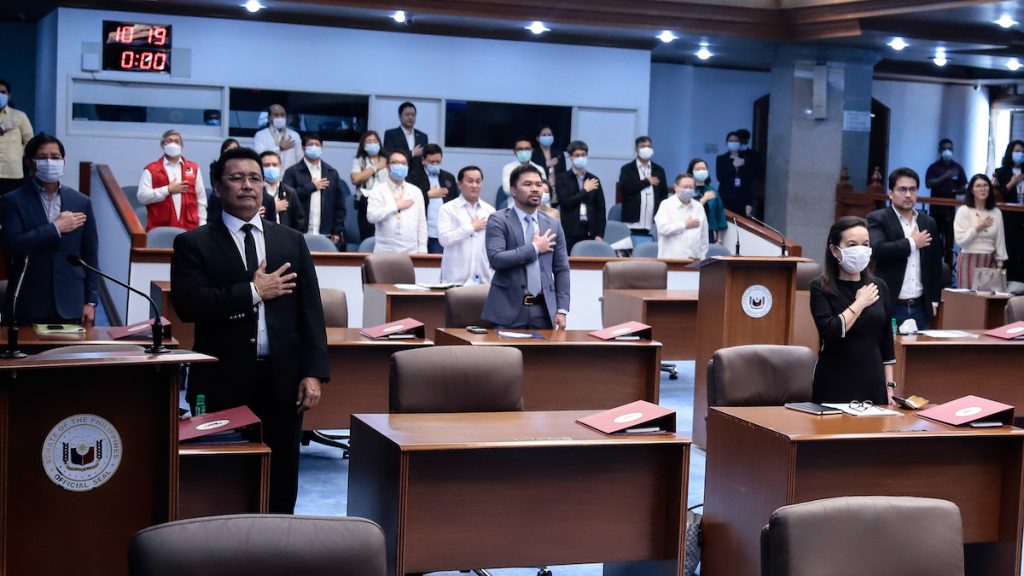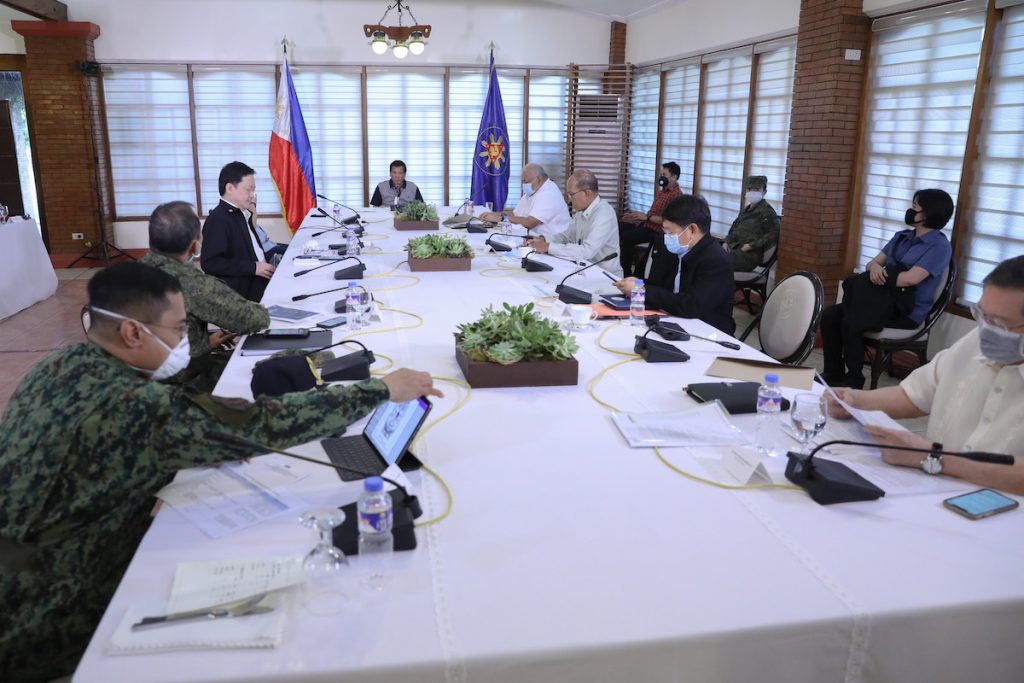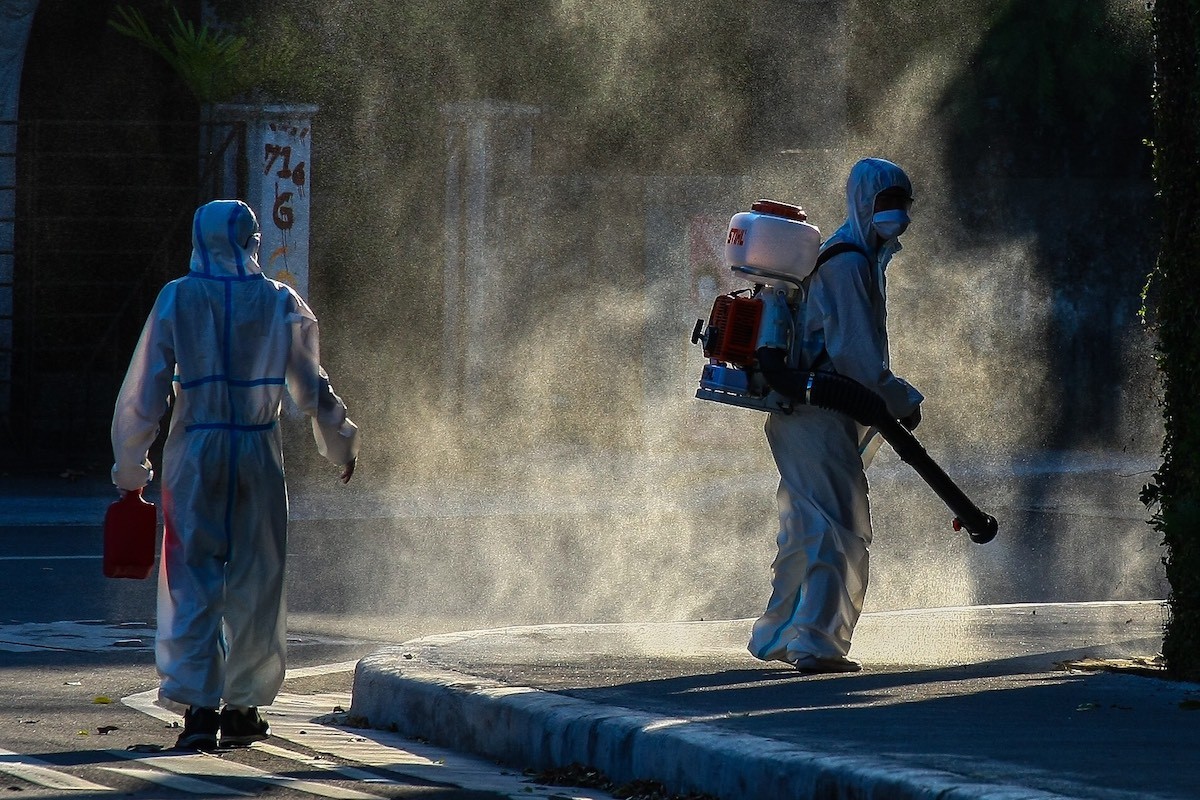Philippines legislators rushed to give President Rodrigo Duterte emergency powers that include the possible takeover of businesses as the government struggles to contain rising cases of the new coronavirus disease.
But after a viral outcry that crested as members of congress started a special session, the presidential palace backed off, agreeing to a milder senate version that mandates the use of private facilities to house health workers and patients under quarantine, and aid distribution efforts.
A presidential proclamation signed by Executive Secretary Salvador Medialdea said Duterte needs the freedom to “re-program” public funds for the needs of 18 million poor Filipinos, and ease welfare pressures in the national capital and Luzon during the one-month lockdown.
The proposed measure also aims to ensure that critical industries continue operations; speed up the manufacture or importation of critical health supplies; and prepare the country for the slow, hard task of recovery.
But the government’s contradictory statements and policies, inefficiency, and penchant for overreach do not inspire confidence. Most of the tasks listed under the proposed measure do not require extraordinary executive powers.
Infirm governance
Existing laws already cover oversight of local government units, the prevention of hoarding and profiteering, the use of funds to mitigate the effects of disasters, and the regulation of movement.
Mechanisms are also in place for lowering lending rates and reserve requirements, and moving deadlines for business requirements.
Many of the problems cited to justify the new emergency powers actually stem from the president’s initial reluctance to prepare for a public health crisis.
Duterte had to be pressured into declaring a travel ban on arrivals from China, where the contagion started. Red tape and turf wars among government agencies held up the procurement of test kits, medical supplies, and protective gear for frontline workers.

Days after Duterte imposed a lockdown, beleaguered health workers and citizens had to prod the customs bureau into releasing these supplies, including donations from the World Health Organization.
On the eve of the special session, netizens flooded Twitter with the hashtag #NoToVIPTesting. News reports indicate that politicians and their families were prioritized for testing, while suspected victims died before their results came back, or even before they could be tested.
The budget department just two weeks ago dismissed legislators’ calls for a supplemental budget, insisting there was enough money for containment and treatment, and social recovery.
And yet Duterte is now seeking emergency powers, even as his aides refuse to answer questions on the use of his $255-million contingency fund.
Dangerous enforcers
Lack of coordination within the health emergency inter-agency task force highlights the lockdown implementation.
Garbled messages aping the president’s brutalist language undermined technocrats, confused citizens and business executives, and turned the state response to a medical emergency into de facto martial law.
“Human rights don’t exist under emergency rule,” said Martin Diño, undersecretary of the Interior and Local Government Department . The lockdown, he added, also does away with the writ of habeas corpus.
Duterte on March 20 scolded local government officials after food companies warned of dwindling stocks as police blockades hampered the delivery of manufacturing components. Two days before, he had given these officials a free hand in protecting their communities from infection.

It didn’t help that in his first lockdown broadcast, Duterte demanded that citizens “just obey” police and soldiers, making them the most powerful arbiters of quarantine rules.
Business executives baulked that troops manning checkpoints were taking their cues from nationally televised briefings by cabinet secretaries and line agency heads, many of them retired generals prone to dismissing media questions as nitpicking.
Safety nets
Advocates of emergency powers say Duterte needs fiscal flexibility to feed the poor.
Opposition legislator Edcel Lagman, however, said laws already provide funds for responses to human-induced or natural calamities.
He cited the $313.5-million national disaster risk reduction and management fund and $235 million more in emergency provisions under the budgets of the health, labor, social welfare, trade, and agriculture departments.
These funds can always be replenished by congress after the quarantine period, he said.
The president and his aides, in the first week of the lockdown, batted away appeals to prioritize the plight of the homeless and 5.6 million low-income earners and small-scale entrepreneurs in Manila’s bustling underground economy.
Duterte dumped the responsibility of ensuring the welfare of the poor onto the private sector and local governments. His finance chief balked at approving key economic measures, like deferment of tax deadlines and access to subsidies. His spokesman, Salvador Panelo, dismissed warnings about growing hunger, saying nobody dies from it.
Corporations, churches, and non-governmental organizations have poured in billions of pesos to help the poor deal with the crisis and to minister to healthcare workers on the front lines.
There is no shortage of love and compassion, and no shortage of cooperation. But there is plenty of fear and plenty of reasons for it.
When the religious and small business owners opened their facilities for food, hygiene, and shelter needs, they found enforcers on their doors. Even when the interior secretary gave the green light for feeding centers, local officials still closed some down.
Gung-ho moves included the enforcement of non-existent rules prescribing only a few staggered hours of movement for citizens, leading to illegal arrests.
“Arrest, arrest, arrest,” is a common thread in government briefings, totally ignoring the reality that the country’s fetid jails are already crammed to bursting point.
The Commission on Audit in 2018 said the inmate population numbered more than 136,000 — over five times the 25,000 capacity.
As the Philippines enters a long, hot summer of contagion, the government itself represents the biggest clear and present danger.
Inday Espina-Varona is an award-winning journalist in the Philippines. She is a recipient of the “Prize for Independence” of the Reporters Without Borders in 2018. The views expressed in this article are the opinions of the author and do not necessarily reflect the editorial stance of LiCAS.news.







